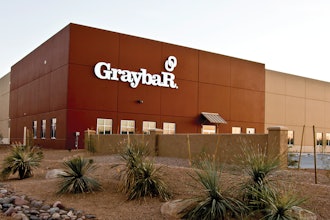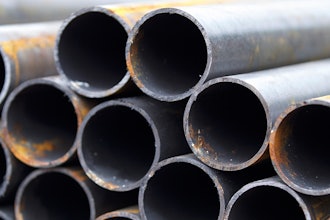DETROIT (AP) — After a year of watching auto sales slowly increase month by month, industry executives are finally willing to firmly declare that the U.S. market is in recovery.
People who had been too afraid to make a big car purchase are finally coming back to dealerships, a little more confident that they won't lose their jobs. And that's reflected in November's auto sales figures: Industry sales were up 16.9 percent for the month compared with a year ago. Ford, General Motors, Chrysler, Honda, Nissan and Hyundai all posted double-digit gains.
"We're starting to see people showing an inclination to go back into the dealerships, to go back into the malls," said Jim Bunnell, general manager of General Motors Co.'s U.S. sales operations. "It's not going to happen overnight, but we think as we roll through 2011, we're going to see a nice, gradual improvement and recovering in the automotive sector."
For most of 2010, car sales were driven by people who needed a car rather than wanted a car. Jeremy Anwyl, CEO of consumer website Edmunds.com, says that still holds true at the end of the year: "They've been putting it off and they can't put it off any longer. Some people waited till this time of year to catch the close-out deals."
Bob Carter, Toyota's top U.S. sales executive, is seeing customers going even further. As the economic landscape improves, the company is starting to see buyers opting for more highly equipped SUVs, which indicates buyers aren't just using them because they need them for family transportation, he said.
Still, Toyota was the only automaker to post a decline, with sales down 3.3 percent. It blamed the drop on a cut in sales to fleet buyers such as rental car companies. Nevertheless, the automaker has been fighting a string of embarrassing safety problems. Toyota has recalled more than 10 million vehicles worldwide mostly for problems with sticky gas pedals or floor mats that can trap the accelerator pedal.
Yingzi Su, GM's senior economist, said the stable and increasing auto sales mean that consumers with jobs are starting to spend again, and that's a good sign for the broader economic recovery. Once businesses see increased consumer spending, they will be more willing to hire workers, a factor that has held back the economic recovery for months.
The U.S. auto market is the most critical market for carmakers, because that's where their profits per vehicle are higher than anywhere else in the world. In China, the world's largest market and a place where auto sales are booming, buyers spend about $10,000 less per car than American buyers. In the U.S., buyers are more inclined to pay for better stereo systems, heated or cooled seats, and other perks that increase the cost of the car and pad the automaker's bottom line.
Ford says its customers are also adding in some costly extras. Transaction prices are up for the automaker as more buyers pay for options like Sync, the company's technology that enables drivers to control the radio and map with their voice, says George Pipas, manager of sales analysis.
Industrywide, transaction prices came down a bit in November, says car buying information service TrueCar.com, with automakers doling out year-end deals and holiday promotions. Incentives jumped 6.4 percent compared with October, but were just slightly higher than last year. Automakers are focusing on low-interest loans and special lease programs to lure in customers, says Jesse Toprak, TrueCar's vice president of industry trends and insight.
It was that kind of deal that got Nathan Turner, a web designer at Quell Group, a suburban Detroit public relations firm, to buy a car this month. He leased a new Nissan Maxima for $360 a month, $20 a month less than his old Maxima lease for a car with a bigger engine and some upgrades.
Turner says his company is healthy, and he's not all that worried about losing his job. He has always been a big saver, putting away anywhere from 15 to 20 percent of his income, which made it easier to weather the downturn in the economy.
So when his Nissan dealer contacted him and said he could get a better car for less money, he decided it made sense.
"As long as I budget properly and watch my expenses, I can make purchases like this," Turner said. His only regret? Buying a car with a bigger engine: "Now I'm gassing up once a week instead of once every two weeks."
__
Auto writers Tom Krisher and Dee-Ann Durbin contributed to this report.






















